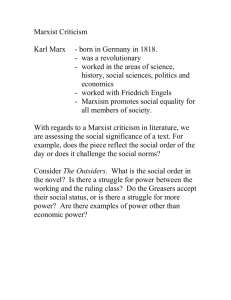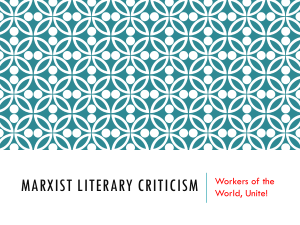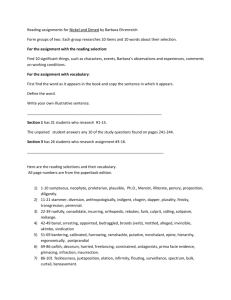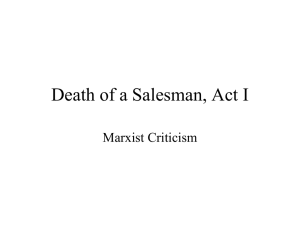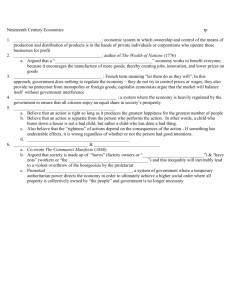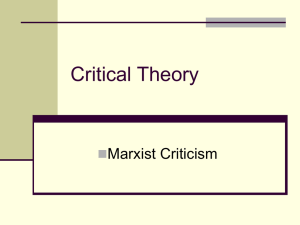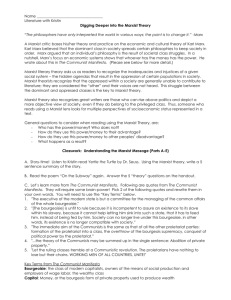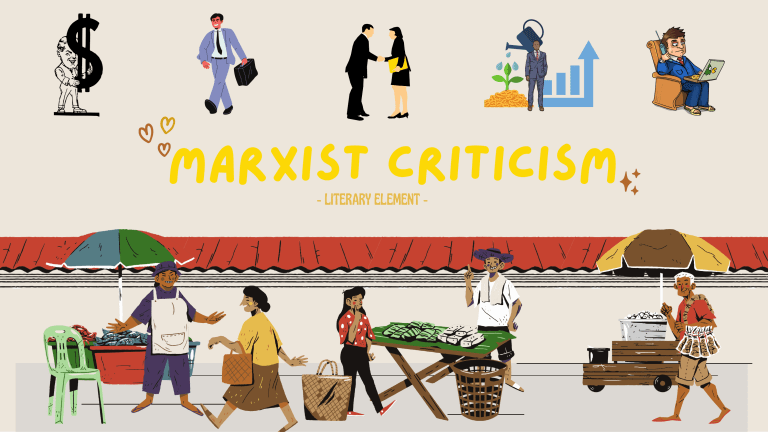
Marxist Criticism - LITERARY ELEMENT - Karl Marx A 19th century German Philosopher that became part of the young Hegelians, and later, the Communist League. He is revered as one of the most influential socialist thinkers of the 19th century. He emphasized that the primary influence on life was economic and saw society as an opposition between the capitalists and the working class Vocabulary Proletariat - also called as the "have nots". The class of industrial workers who lack their own means of production and hence sell their labor to live; the lowest social or economic class of community. Bourgeoisie - also know as the "haves". Is a class or group of people with social behavior and political views held to be influenced by private-property interest; a social order dominated by capitalists or bourgeois. Commodification - is one way the bourgeoisie keep the proletariat oppressed. Whenever the proletariat manages to acquire some sort of status symbol, the bourgeoisie concocts a new one; thus, the proletariat continues to struggle, never able to “catch up.” Marxist Criticism Examines the nature of power structures within a literary work Political in nature, responding to larger and material constructs The literature that has resulted from this type of study concentrates on individuals caught up in a class conflict. Marxist Criticism It emphasizes persons of the lower class and their constant oppression by the upper class. The poor may try to escape their situation but ultimately fall back under the ruthless dominion of the capitalist oppressor. A marxist critic asks questions like: Who has power? Who lacks power? What is the relationship between power and wealth? Who is exploited by whom and why? How does power remain constant or shift throughout a work of literature? What makes certain characters powerful or powerless? Let's analyze: The Hunger Games Trilogy by Suzanne Collins In it, various districts are struggling economically and socially and eventually rise up against their government. The Marxist critique would go as far as to say that it was those conditions that caused the series to unfold the way it did. It was simply people rebelling against an unfair way of life. THANK YOU COURAGE CLASS! See you in my next one.
